A Guest Blog by Tammy Wilson
Once upon a time, in a land very, very near to where I sit writing this, a wee little Tamlet pitched a fit. It was a great fit. It was the kind of fit only a five or six year old girl can pitch. It was beautiful, something to behold as far as fits go. I was pissed.
My two older brothers, also known as the monsters, were in Grandma’s back yard, on the edge of the lake. They were fishing. I didn’t know a single thing about fishing. I only knew that the monsters were doing it, they were having fun, and I wasn’t. That simply would not do. I had asked them if I could fish with them, but as the monsters always did, they said no. They said girls don’t fish. Then they said the one thing that was pretty much going to guarantee that I was GOING to do this fishing thing… they said I “couldn’t”.
Since I was a wee little Tamlet, that word has been a trigger. Don’t tell me I can’t do something. You may as well be daring me to do it. I’ve always been the kind of person who will not only do it out of spite, I’ll show you fifty ways that I CAN do it. It’s not always a good trait to have.
The monsters had said no. And then they had gone so far as to dare me. I couldn’t beat them up, the monsters were big… so I did the one thing that any five or six year old girl knew how to do. I pitched a fit. Not two minutes later my father was yelling at the monsters to let their little sister fish and I was standing there with my tongue hanging out. I had won! Ha! Take that.
And so the monsters did the same thing they did every time that happened. They let me fish. They didn’t show me how, they didn’t help. Oh no. They simply just stopped keeping me from it. I had been watching, though, and I thought I could pull this off. I found myself a good stick, and took it in the house and my father tied a piece of line on it and stuck a hook on the end. The monsters had some bread out there and so I grabbed a piece off the table and I was out there in no time.
It took a little while to figure it out. The monsters were letting no secrets out. I had NO idea how to put the bread on the hook. I used that first piece of bread in about ten minutes and had to go in for more. I knew better than to pitch another fit. As a master of the fits, I knew you could only use them so often, or they lost their effectiveness. I was not a stupid child.
Eventually the monsters got tired of watching my failure and went off to do something else. I’m sure I wanted to do whatever it was they were doing, but I knew that I had been as much as dared to catch a fish at that point and that I could not stop until that mission was accomplished. Oh the tongue sticking out I was going to give them! If only I could figure it out.
Lucky for me, bluegill aren’t smart fish, or very hard to catch. I finally somehow managed to screw up and actually catch one. I was so proud of myself. I had done it! I had done it all by myself and I sure showed those monsters. But when I did show my beautiful catch to them, they laughed. Smallest fish they’d ever seen they said. They howled in laughter. They knew something else I didn’t know. I had to get that fish off the hook. After poking myself several times and freaking out over the moving slimy fish on the end of my line on my stick, I finally had to walk it inside where the grown-ups were sitting and have someone take it off. That poor fish didn’t survive.
That poor fish, though, wasn’t the only thing hooked that day. I was hooked. I had learned that there were living things under that water. I had learned that you could actually catch them. I put another dough ball on that hook and bam! Another fish. I hauled that one out of the water and this time when I stuck my tongue out at the monsters they didn’t laugh. It was huge by “Grandma’s Lake” bluegill standards. That was it. That was the end of my sweet little girl days.
Another monster had been born that day. From that day forward, it was always about the fishing. Oh occasionally I’d have to do something else the older monsters were doing. I spent my fair share of time in the woods sitting with my sack waiting for snipe to run into it. Didn’t matter to me, though. I had shown the monsters, and I was going to keep showing them. Spite is as good a reason as any to go fishing, really.
Tammy Wilson, a talented fly fisher and writer, lives in Cocoa. This is her second guest blog with us.
All content in this blog, including writing and photos, copyright John Kumiski 2012. All rights are reserved.
|


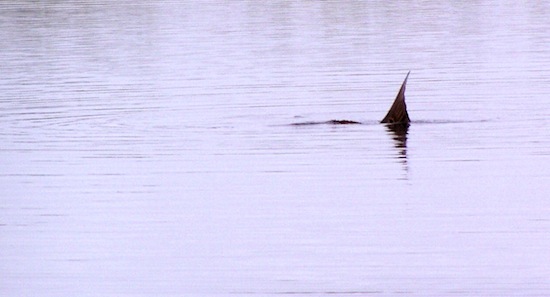
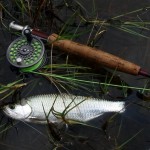
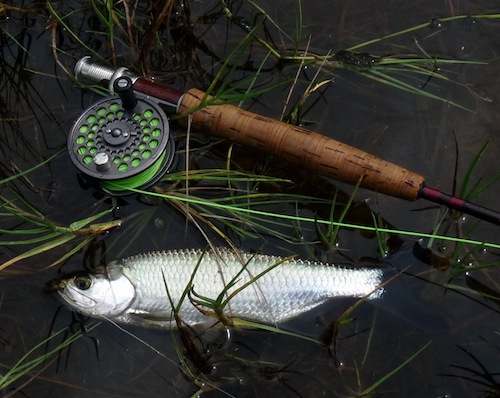
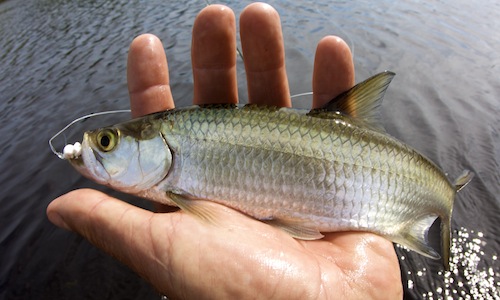

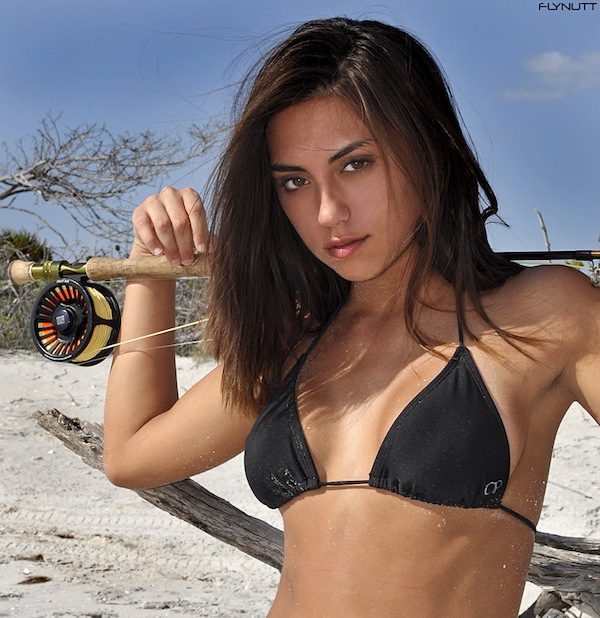
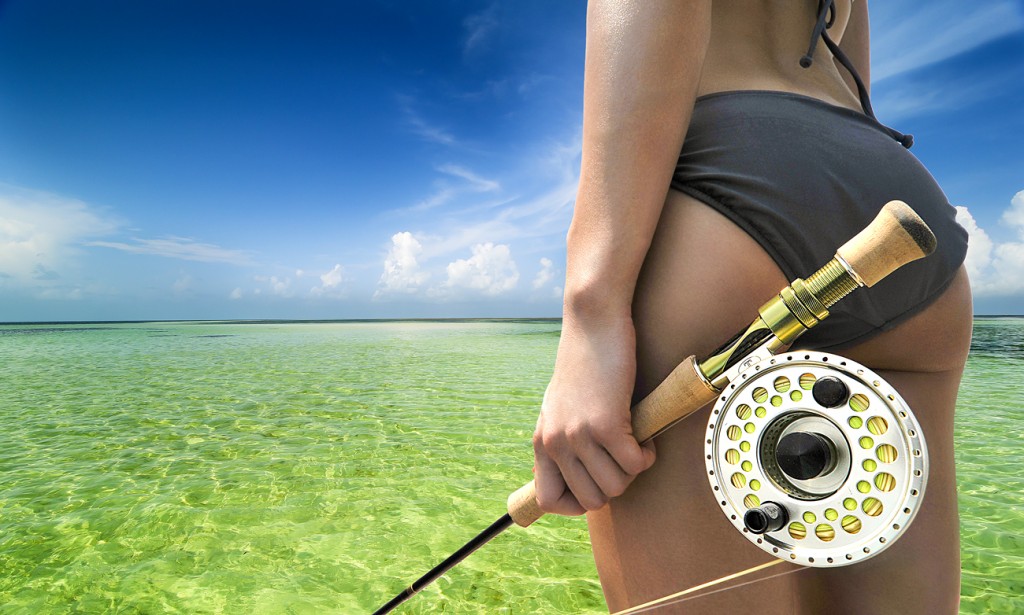

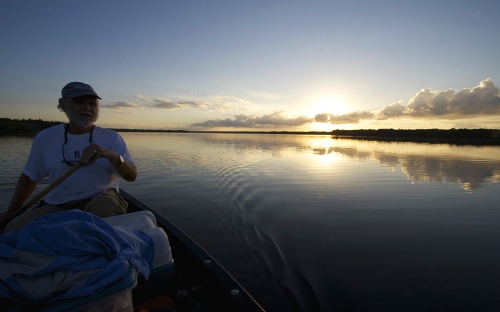
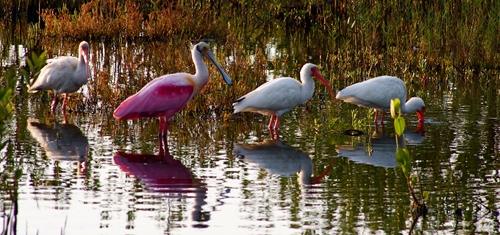
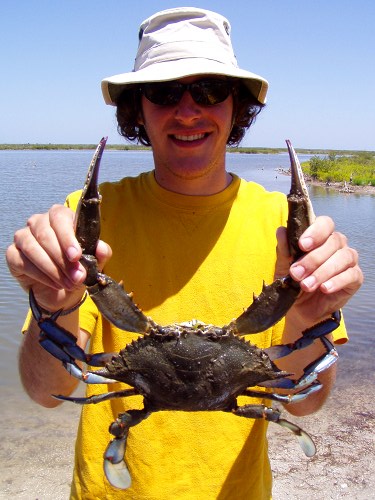
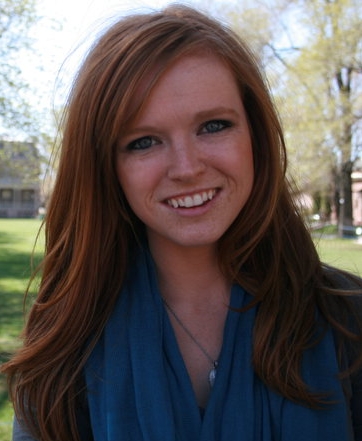
Recent Comments